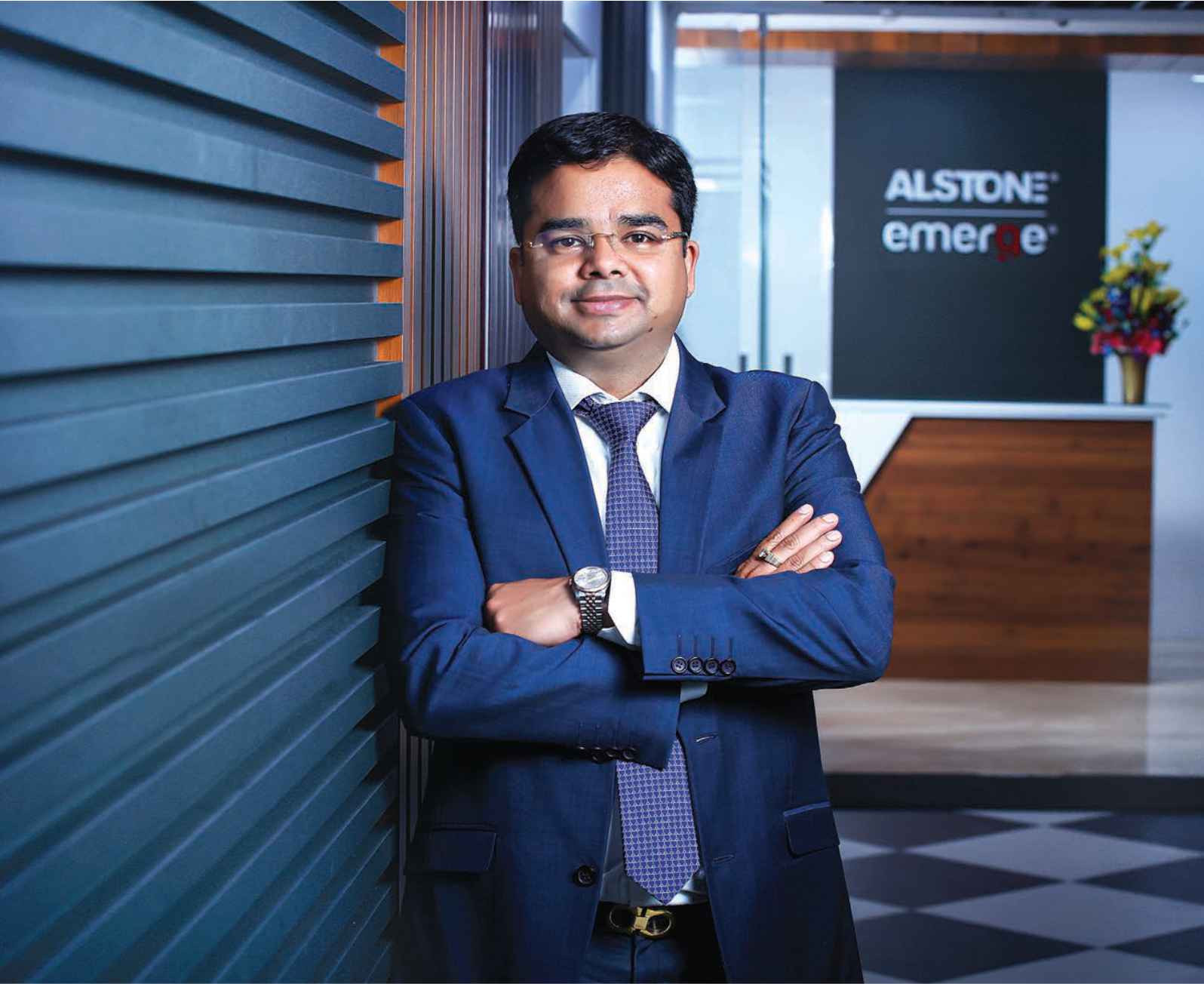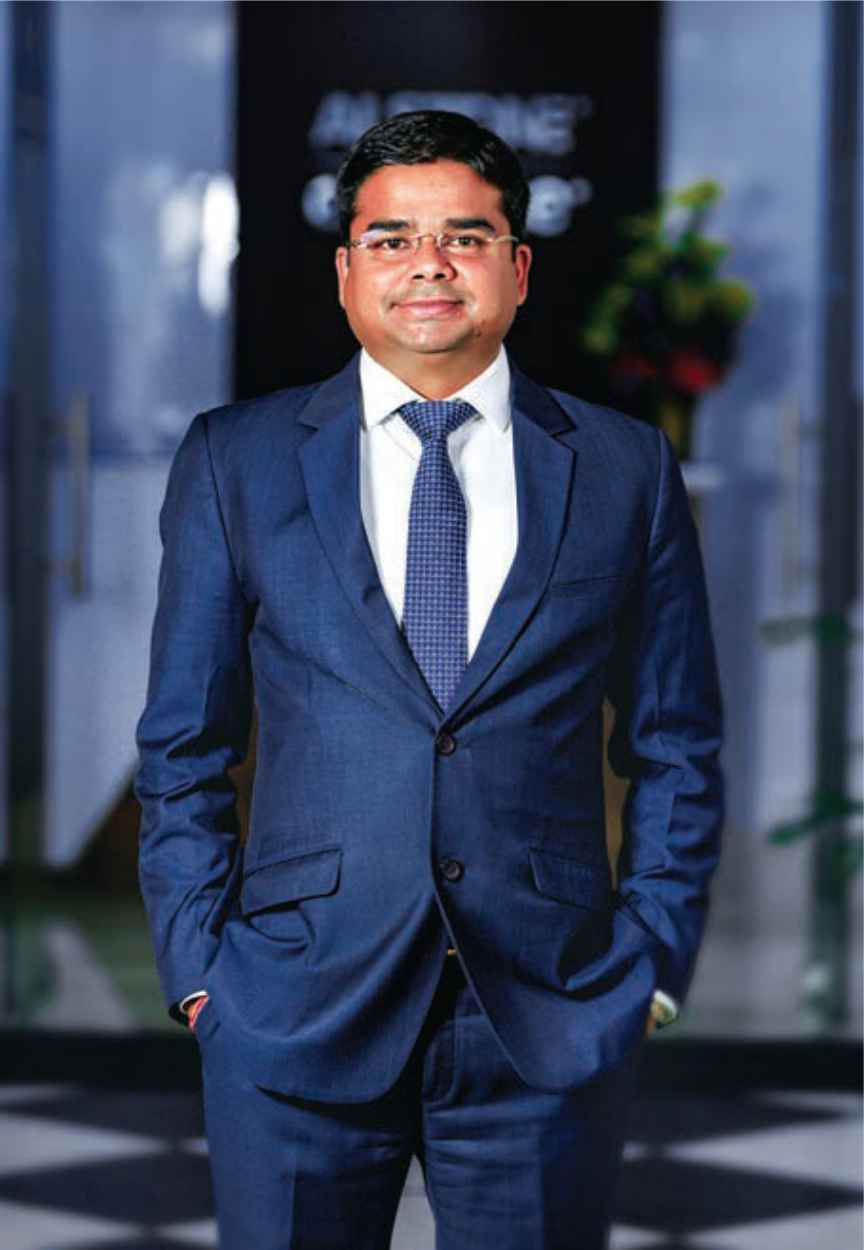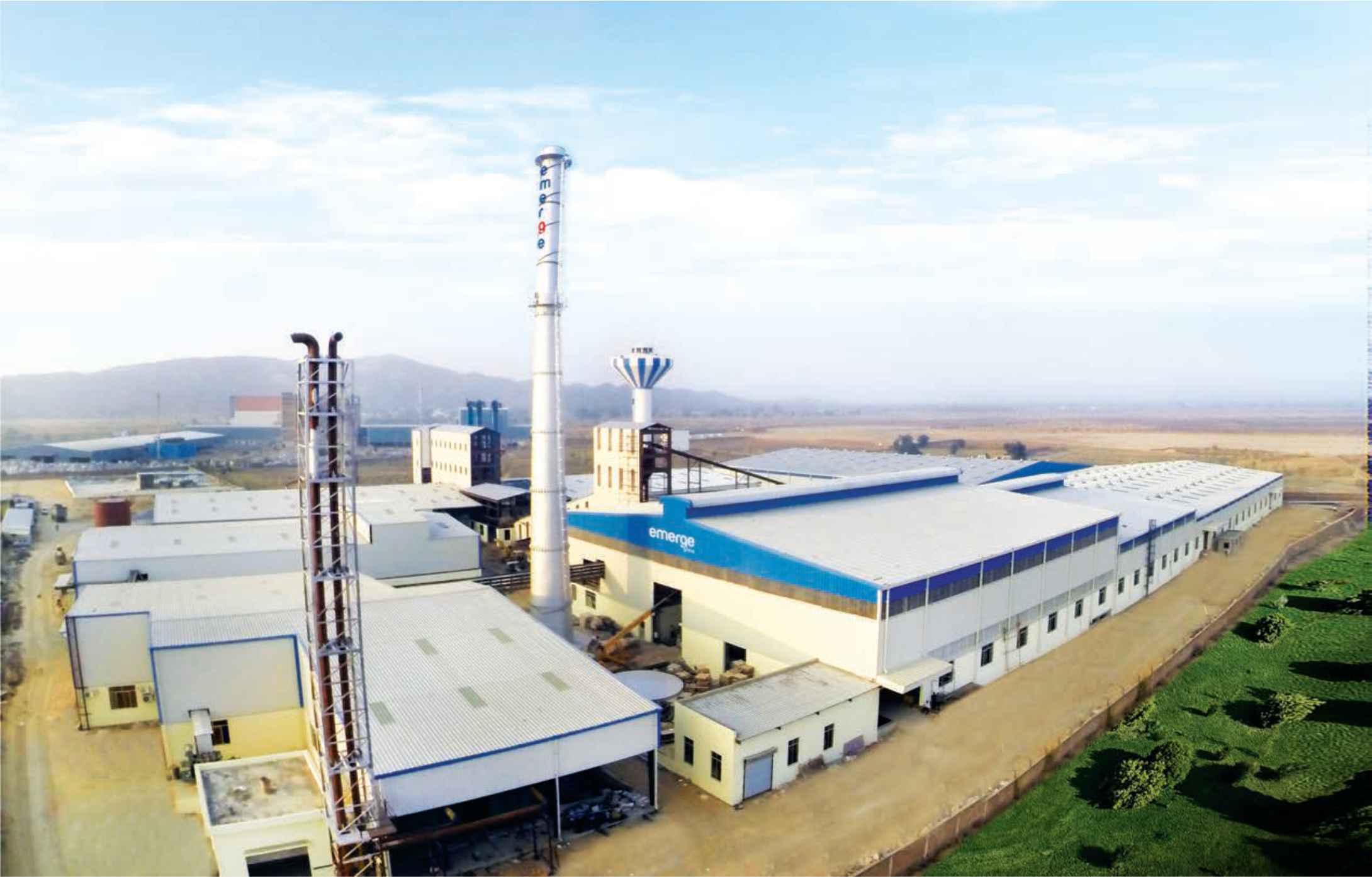Emerge Glass (Alstone Group) MD Sumit Gupta Speaks To GB About His Vision & Future Plans
As Emerge Glass bets big on its new division Emerge Renewable, Mr Gupta says solar is talk of the town, market will see a rapid rise in demand in the upcoming days.

Your career path is a success story. Walk us through the path you took to reach where you are today and what inspired you along the way?
I set up my business in 2004, right after my post-graduation. It was my goal to be able to make it successful.
My father was my role model and inspiration because I had seen him run his own business. Other than him, the renowned business houses of India such as Reliance and Tata were my business role models.
What according to you are the biggest strengths of your companies?
For both our business verticals, Alstone and Emerge, the biggest strength, I would say, is our vision. This is because without vision, no company can grow. It is the vision of a company that propels its growth.
In addition to our vision, our most important strength is our team. Without a good team, it is very challenging for any organization to be successful.
Tell us about your management style.
The practical day-to-day experiences I have had while running this business has taught me a lot. One aspect of successful businesses that I follow is delegation of work. When you trust your team, give them responsibilities and hold them accountable for those responsibilities, the company works better.

Your dealer & distribution network in India is very strong. Tell us about it?
Our dealer and distribution networks for Alstone and Emerge Glass are parallel. Pan-India we have more than 600 dealers in total. We have 16 branch offices across India where we also keep our stock and provide instant service to our dealers. So our network, which is like a backbone to our company, works efficiently to help our dealers generate more business on a daily level.
What motivates you to come to work every day?
My motivation is “What’s next”. The possibility that tomorrow holds, what we can do tomorrow, what new change we can bring tomorrow or what new innovative product we can work on tomorrow – this motivates me to come to work every day.
Emerge is a leading name in flat glass, so what is next for the company? Any new product range or new division in production?
We are the leaders in flat glass and two years ago, we entered container glass as well. Under this division, we are making glass bottles and it is going really well. And this year, we have already started our project work for solar glass. This is a big expansion within our group and we are going to expand to solar aggressively.
The Emerge Renewable plant we are setting up in Rajasthan will be the first plant in north India for solar glass. The land on which the plant is being set up is about 35 acres and we are making such a provision that we can plan a second furnace there immediately after the first furnace is operational. Our plan for solar is aggressive and we see potential in solar industry.
What was the idea behind Emerge Renewable?
Like I said I always believe in “what’s next”. As our two verticals are doing well, we decided that we needed to expand to something new. And I think solar now is a global topic to talk about. Every country is talking about green energy. Our Prime Minister Mr Narendra Modi has committed to installing 500 GW of renewal energy by 2030. I think this is a very optimistic approach and to get to this number there will be a requirement of a large quantity of solar modules and solar glass. And since this government is focused on ‘Make in India’, we think there will be a huge requirement for solar glass in the country.
So what is the production capacity of your plant and who is your technological partner in this venture?
We are setting up this plant in the vicinity of our existing thin flat glass and container glass plant, and we have already started work on our project site. Our aim is to start production by October 2024. The capacity of the plant we are setting up will be 300 tons per day. And for this venture, we have entered into a tie-up with CTIEC (China Triumph International Engineering Co., Ltd), a state-owned company in China which is a top name in the world of solar glass. Approximately, this project will need an investment of around Rs 360 crore.
Given the government’s vision of 500 GW of renewal energy by 2030, where do you think we stand now and how will we reach that goal?
At present, the installed capacity can produce solar panels of around 15-18 GW in a year. And since the target of the government is 500 GW of renewal energy in the next seven years, the installed capacity needs rapid growth or else we will not be able to reach it. So we foresee the installed capacity to grow to the level where solar panels of around 50 GW can be produced in a year to reach the target. In our notice, about 5-6 companies have given their commitments in solar glass, but even if these 5-6 manufacturers begin producing solar glass then also there will be adequate requirement in the market to be met as we are looking at a production capacity of around 50 GW in a year. So, more solar panel plants are expected to come up as Indian manufacturers are going to support the government in this vision.

The plant we are setting up for solar glass will have a glass processing facility as well. The glass coming out of our factory will be a ready-to-use product for a solar module factory.
Companies manufacturing solar modules will buy glass from us and place them directly on the module and there will be no need for any kind of processing of the glass. So it will be a B2B product which will go from our factory to another and will be directly put to use. But in the future, as the market matures, our existing network of dealers will be able to procure solar glass from us and supply them to processors involved in the production of solar modules on a smaller scale.
Can you walk us through the thickness of solar glass in the current scenario and also what we can expect in the near future?
Within solar glass, the thickness that we have in India today in general is 3.2 mm and now, some quantity has also started at 2.8 mm. We are in the very initial stages and if we compare the thickness we have to that in China, we will notice that China has mostly gone to 2 mm. So, I think gradually in India too this thickness will go down to 2 mm but it will take some time. But the important thing to note here is that the agreement we have signed with CTI will enable us to make and process 1.8mm thickness as well. So we have already incorporated the future requirement into our planning. If the demand arises, we will be able to make solar glass of lower thickness. My opinion is solar glass will gradually reduce from 3.2 to 2 mm in the coming days.
Coming back to glass manufacturing, we all are aware that once a furnace starts production, it cannot be stopped. How does Emerge Glass deal with this challenge?
We may consider it as a challenge to be in a continuous industry, but my own opinion is that this is not a challenge, it is a feature of the industry. Initially when we had set up our sheet glass plant, there was a big fear in our minds on how to handle the work in a continuous industry.
But I think that fear was there till our first furnace only, and after that once you accept this feature, it becomes routine. We are going to install our third furnace now, for solar glass, and keeping in mind the demand for solar glass, keeping in mind the growth, I think being in a continuous industry is challenging, but it has its advantages as we will be able to meet the demand that is going to come.

The strategies that we just discussed are what we have adopted in the organization. The most important thing in the market is commitment and if any company is fulfilling its commitment timely, it stands apart and will come out on top of the game.
Where do you see your company in the next 5 years?
Our vision for the next 5 years is that we have to take ourselves to the point that we can make our company a public limited entity. Our Alstone brand, which is in cladding vertical, and Emerge Glass, which is in glass vertical, should continue to grow stronger in the next few years.
We learnt a lot about your vision for Emerge, can you tell us more about your plans for the Alstone vertical?
Since we started Alstone back in 2004, we have always been on the path of growth. Alstone has always brought new products to the market and especially in the last two years, we brought a lot of innovative products to the market and have also offered backward integration. We installed our own coating line. Now we can provide customized colors or shades hasslefree and fast, while also keeping the timeline in mind.
Recently, we have brought two very innovative products. One of them is our Aluminium Honeycomb Panel, Alstone ALCOMB, which has been getting very positive responses from architects and facade consultants. We have also tied up with French company VMZINC. Under this collaboration, we will make Zinc Composite Panels, Alstone ZINC, in India and market it. VMZINC is a 185-year-old company which has a presence in India for 10 years now. We are very proud of this association and I think we will see good growth in Alstone by the next financial year.

Website: www.alstoneindia.com | www.emergeglass.in
